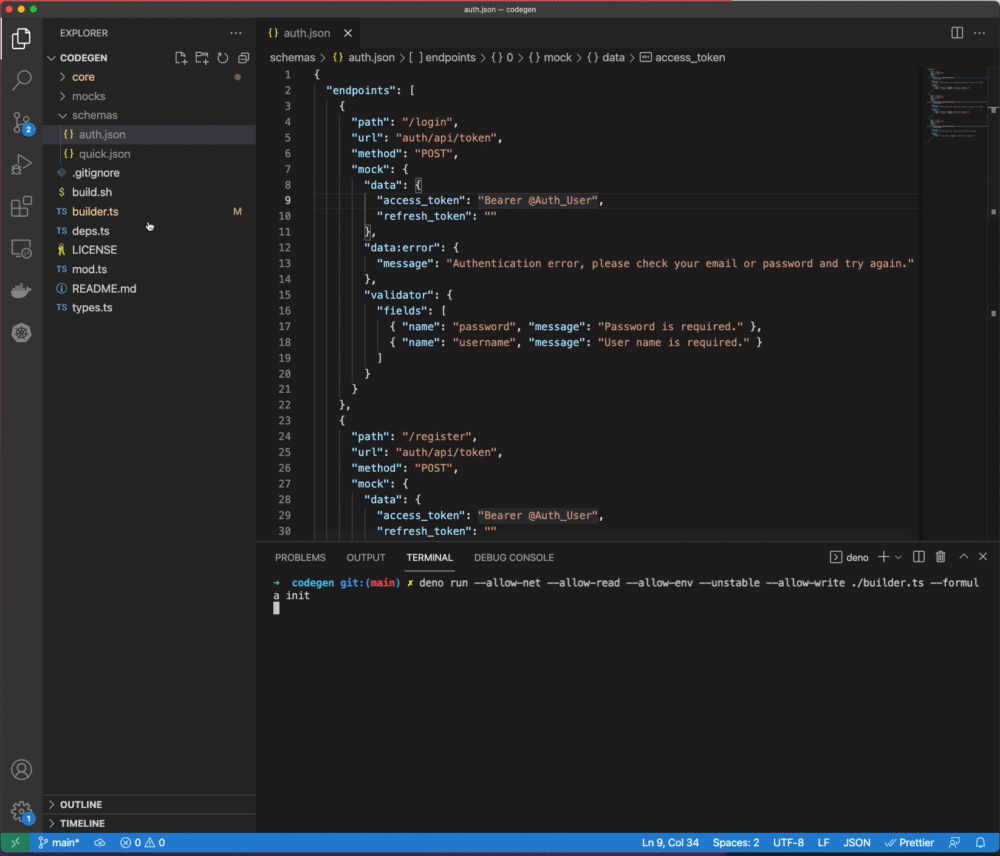apigen
Auto generate your api routes for development and production. Use mocks to build api routes for local envs. Works perfect for next.js and deno. The fastest way to build your API and test with confidence.
Getting Started
Make sure to create a mocks and a schemas directory. Check out the schema section to learn how to build your api. The idea is that the api routes are always checked in .gitignore and built at the build level for systems. Its better to setup the module to be used via script to run with pre-install scripts or pre-build scripts - checkout build.sh for an example. Make sure to add a environmental(.env) variable named API_HOST with the url of your api endpoint. If you want to build a mock api set API_HOST=localhost to make all endpoints return mock data.
import { codegen } from "https://deno.land/x/apigen/mod.ts";
codegen();
Configuration
example: schema
{
"endpoints": [
{
"path": "/login",
"url": "auth/api/token",
"method": "POST",
"mock": {
"data": {
"access_token": "Bearer @Something",
"refresh_token": ""
},
"data:error": {
"message": "Authentication error, please check your email or password and try again."
},
"validator": {
"fields": [
{ "name": "password", "message": "Password is required." },
{ "name": "username", "message": "User name is required." }
]
}
}
}
]
}Mocks
In order to import a mock file add @import filename under the mock.data key and replace filename with the mock path in the mocks folder. Make sure to export your mock correctly.
{
"endpoints": [
{
"path": "/friends",
"url": "friends/api/list",
"method": "GET",
"mock": {
"data": "@import friends",
"data:error": {
"message": "Access denied."
}
}
}
]
}Make sure to export the var named as mock in order for the builder to pick it up.
export const mock = ["hi", "bye"];Schema
A json file named of the lambda functions that you are going to create.
TODO: checkout initial schema example.